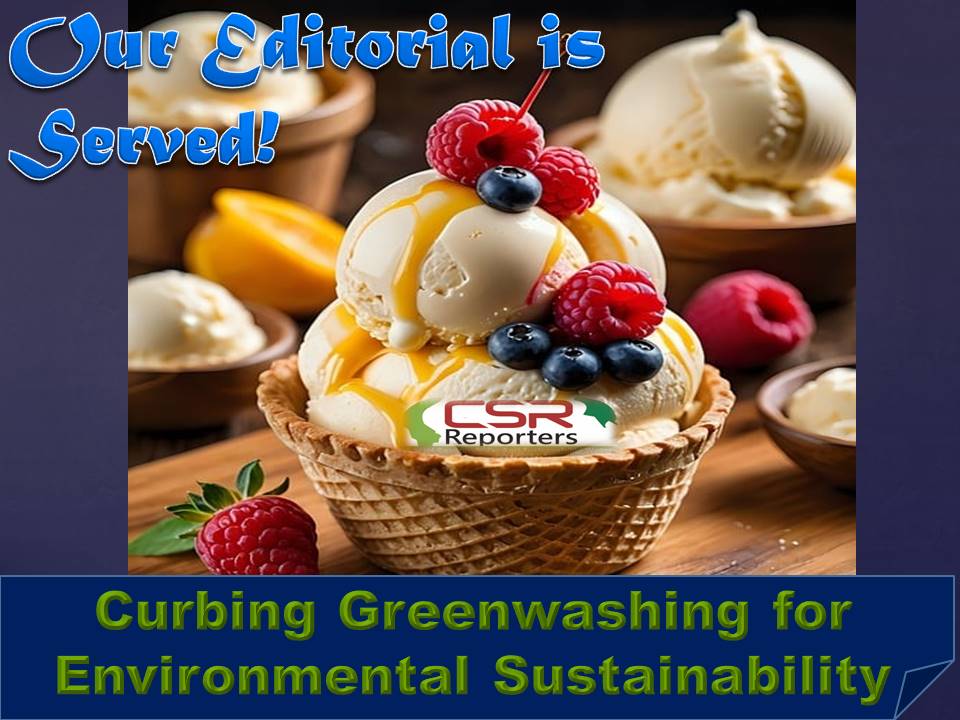
In recent times, the global spotlight has turned sharply towards the imperative of environmental sustainability.
Consumers worldwide have become increasingly conscientious, scrutinising product labels before making purchases.
However, this heightened awareness has also led to a rising concern: the phenomenon known as ‘Greenwashing.’
Greenwashing involves deploying misleading information to create the perception of a product’s eco-friendliness, primarily for the purpose of boosting sales.
It entails making unsubstantiated claims that deceive consumers into believing a product is more environmentally responsible than it truly is.
This tactic often encompasses the strategic highlighting of a product’s sustainable attributes, intended to divert attention from the manufacturer’s culpability in environmental pollution.
Greenwashing is a widespread practise, with both major corporations and smaller entities found guilty of its deployment.
It assumes diverse forms, such as fashion brands promoting clothing made from seemingly “sustainable” fabric while their broader clothing line is ecologically damaging.
Similarly, companies may assert their products are “all-natural” or “organic” without possessing any certification or tangible evidence.
Another deceptive practise is the claim of “biodegradability,” “recyclability,” or “carbon neutrality” without the backing of certification or substantiation.
A classic instance of corporate greenwashing unfolded when McDonald’s introduced paper straws in 2019, only for it to be revealed later that the straws were non-recyclable.
Greenwashing refers to deceptive marketing practises where companies falsely portray their products or services as environmentally friendly to attract eco-conscious consumers. In Nigeria, instances of greenwashing have been observed, such as companies claiming their products are “natural” or “eco-friendly” without substantiating these claims. For example, the oil and tobacco industries spend a lot of resources to claim that they are eco-friendly, but in reality, the opposite is the case.
Consumers can identify greenwashing by looking for inconsistencies between a company’s claims and actual practises. Key indicators include vague or unsubstantiated environmental claims, excessive use of green imagery, and a lack of specific details about eco-friendly features.
Regulatory bodies like the Federal Competition and Consumer Protection Commission (FCCPC) in Nigeria have mandates to prevent false advertising, including greenwashing. However, their effectiveness can vary due to resource constraints and the complexity of detecting deceptive claims.
CSR Reporters argue that Greenwashing can mislead consumers into making choices that they believe are environmentally responsible but are, in fact, harmful. This erodes consumer trust, dilutes genuine sustainability efforts, and slows down progress towards addressing real environmental issues. It also prevents consumers from making informed choices and can perpetuate unsustainable practises.
We urge companies should ensure their claims are backed by verifiable evidence. They can adopt third-party certifications and labels, provide transparent information about their practices, and avoid making vague or exaggerated claims. The FCCPC can work to strengthen regulations, increase penalties for false claims, and raise consumer awareness about greenwashing.
Currently, Nigeria does not have specific laws directly addressing greenwashing. However, existing laws related to false advertising and consumer protection, like the Federal Competition and Consumer Protection Act, can be applied to combat deceptive marketing practises. These laws can be enforced to penalise companies found guilty of greenwashing.
Indeed, addressing greenwashing requires a collaborative effort among regulatory bodies, businesses, consumers, and civil society organisations. Raising awareness, improving transparency, and advocating stronger regulations are crucial steps to combat this harmful practise and promote genuine environmental stewardship.









